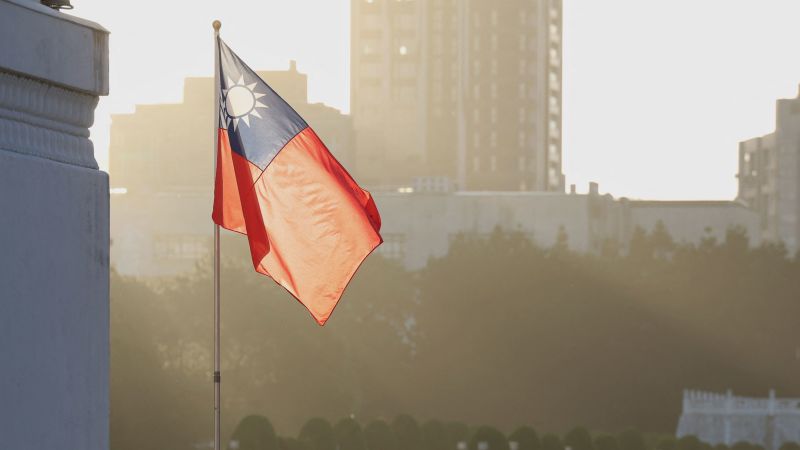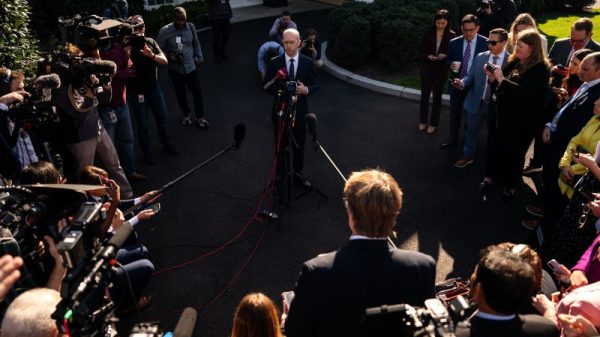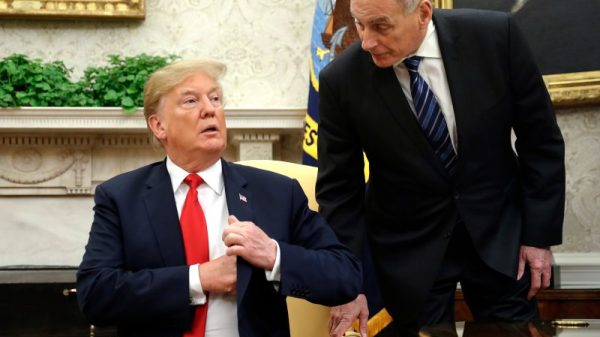Taiwan’s presidential office held a “tabletop” exercise on Thursday simulating military escalations by China, a first-of-its-kind drill involving government agencies beyond the armed forces that highlights Taipei’s urgency in ensuring preparedness against an increasingly assertive Beijing.
The simulation involved central and local government units and civil groups, and was aimed at testing governmental responses to various scenarios if cross-strait tensions were to escalate further, Taiwan President Lai Ching-te said on Thursday evening.
“We conducted a tabletop exercise to verify the level of preparedness of each government agency in responding to extreme scenarios,” Lai said. “We believe that as long as the government and society are prepared, we can adequately respond to different threats – including natural disasters and authoritarian expansionism.”
China’s ruling Communist Party claims the self-governing democracy as its own territory, despite having never controlled it, and has not ruled out taking the island by force.
Taiwan has seen a surge of Chinese military activities in the Taiwan Strait and the Western Pacific in recent months with more Chinese naval and coast guard vessels moving in regional waters, and increases in Chinese aircraft operating around the island.
Earlier this month, China fielded its largest regional maritime deployment in decades – including multiple formations of Chinese naval and coast guard vessels – in regional waters and around the Taiwan Strait, according to Taiwan’s Defense Ministry.
China has also conducted two large-scale military exercises surrounding Taiwan this year, one in response to Lai’s inauguration in May and a second to his National Day address in October.
Lai – who is openly loathed by Beijing for his views championing Taiwan’s sovereignty – and the ruling Democratic Progressive Party have repeatedly rejected Beijing’s territorial claims, emphasizing the island democracy is “not subordinate” to China and that Taiwan’s future can only be decided by its 23.5 million people.
Unlike traditional war games by the military, the tabletop exercise was aimed at testing how different government agencies could “ensure the normal functioning of society” in times of crisis, according to Taiwan’s presidential office.
It simulated two scenarios: one where China imposes “high-intensity” grey-zone warfare tactics, and a second where Taiwan is “on the brink of conflict,” the office said. Grey-zone tactics refer to actions that fall just below what might be considered acts of war.
Government agencies were not allowed to prepare notes in advance and had to react immediately to different contingencies, the presidential office said, without elaborating on the exact circumstances featured in the simulation.
While Taiwan’s military regularly holds tabletop war games to test its defense readiness, Thursday’s exercise was the first time that the presidential office has held a simulation that focuses specifically on civil responses to the threat of a Chinese invasion.
The simulation was chaired by Vice President Hsiao Bi-khim, presidential office secretary-general Pan Men-an, and National Security Council secretary-general Joseph Wu.
Taiwan’s Interior Minister Liu Shyh-fang, who was among a few officials leading the exercise, said one major takeaway from the simulation was a need to enhance Taiwan’s ability to combat disinformation during extraordinary times.
Liu said that while Taiwan’s defense ministry was well positioned to respond to different situations, many government agencies struggled to clarify falsehoods during electricity or internet outages, highlighting the need for Taiwan to have a backup mechanism to ensure the flow of information.
She added that authorities have plans to recruit and train 50,000 volunteers across Taiwan to assist in disaster relief by the end of next year, which will include workers from the public sector.
Lin Fei-fan, a deputy secretary-general of Taiwan’s National Security Council, added that the simulation was crucial in showcasing the island democracy’s determination to boost its resilience across society.
“Conducting tabletop exercises at this time is crucial for us to strengthen preparations for the future and identify areas for improvement,” he added.










